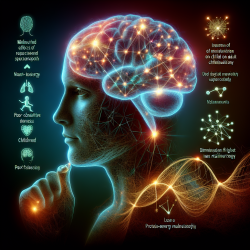Introduction
As the global population ages, dementia emerges as a significant healthcare challenge. With over 55 million individuals worldwide living with dementia, innovative solutions are crucial for improving diagnosis, treatment, and caregiving. The advent of Large Language Models (LLMs) like ChatGPT offers promising avenues in dementia care and research, potentially revolutionizing diagnostic strategies and therapeutic interventions.
Understanding Large Language Models
LLMs are advanced AI systems capable of understanding and generating human-like text. They can engage users in meaningful conversations, deliver personalized support, and offer cognitive enrichment. However, deploying LLMs in dementia care involves considerations of privacy, safety, and ethical guidelines to ensure responsible use.
Applications in Dementia Care
LLMs can enhance dementia care in several ways:
- Companionship: LLMs can provide emotional support and reduce feelings of loneliness, a known risk factor for dementia.
- Information Retrieval: They can serve as a knowledge reservoir, offering accessible and understandable information about dementia.
- Therapy Aid: LLMs can assist in therapeutic interventions like reminiscence therapy, enhancing emotional wellbeing and cognitive function.
- Reading and Writing Assistance: They can help interpret complex texts and assist in drafting communications, addressing common language deficits in dementia.
- Navigation Support: LLMs can aid in spatial navigation, crucial for individuals with dementia who may experience visual cognition challenges.
Challenges and Considerations
Despite their potential, LLMs face challenges such as data privacy concerns, potential biases, and the need for empirical validation. Ensuring user-centered design and adapting to individual needs are critical for successful deployment. Additionally, ethical guidelines must be established to mitigate risks and ensure the safe use of LLMs in dementia care.
Conclusion
LLMs hold significant promise for enhancing dementia care by improving cognitive abilities, enriching social interactions, and supporting caregivers. However, their implementation must be guided by ethical considerations and empirical evidence. Ongoing research and development are essential to fully harness the benefits of LLMs and improve the lives of individuals living with dementia.
To read the original research paper, please follow this link: Introduction to Large Language Models (LLMs) for dementia care and research.










